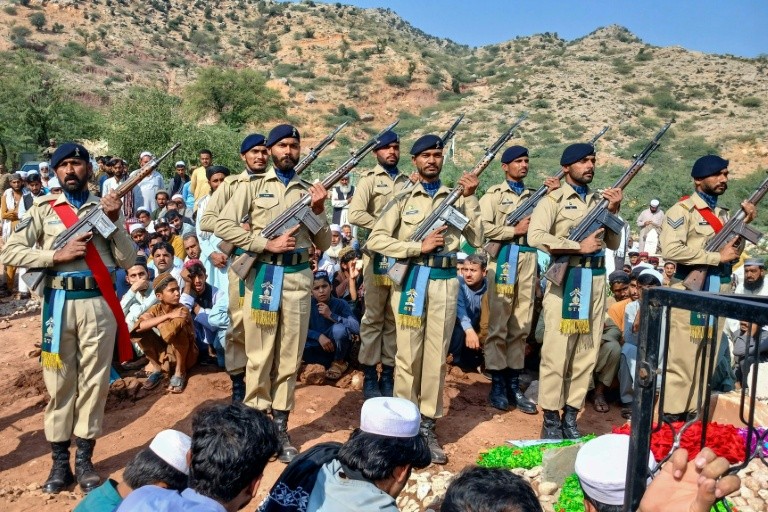
Pakistan officials will hold talks in Qatar Saturday with their Afghan counterparts, a day after Islamabad launched air strikes on its neighbour killing at least 10 people and breaking a ceasefire that had brought two days of calm to the border.
"Defence Minister Khawaja Asif and intelligence chief General Asim Malik will be heading to Doha today for talks with Afghan Taliban," Pakistan state TV said.
An Afghan Taliban government official also confirmed the talks would take place.
"A high-level delegation from the Islamic Emirate, led by Defense Minister Mohammed Yaqub, left for Doha today," Afghan Taliban government spokesman Zabihullah Mujahid said on X.
A 48-hour truce paused nearly a week of bloody border clashes that killed dozens of troops and civilians on both sides.
But late Friday Afghanistan accused Pakistan of breaking the ceasefire, with deadly effect.
"Pakistan has broken the ceasefire and bombed three locations in Paktika" province, a senior Taliban official told AFP, speaking on condition of anonymity. "Afghanistan will retaliate."
Ten civilians were killed and 12 others wounded in the strikes, a provincial hospital official told AFP on condition of anonymity, adding that two children were among the dead.
The Afghanistan Cricket Board told AFP that three players who were in the region for a domestic tournament were killed, revising down an earlier toll of eight.
It also said it was withdrawing from the upcoming Tri-Nation T20I Series involving Pakistan, scheduled for next month.
In Pakistan, a senior security official told AFP that forces had "conducted precision aerial strikes" in Afghan border areas targeting the Hafiz Gul Bahadur Group, a local faction linked to Tehreek-e-Taliban Pakistan (TTP) -- the Pakistani Taliban.
Islamabad said that same group had been involved in a suicide bombing and gun attack at a military camp in the North Waziristan district that borders Afghanistan, which left seven Pakistani paramilitary troops dead.
Security issues are at the heart of the tensions, with Pakistan accusing Afghanistan of harbouring militant groups led by the Tehreek-e-Taliban Pakistan (TTP) -- the Pakistani Taliban -- on its soil, a claim Kabul denies.
The cross-border violence had escalated dramatically from Saturday, days after explosions rocked the Afghan capital Kabul, just as the Taliban's foreign minister began an unprecedented visit to India, Pakistan's longtime rival.
The Taliban then launched an offensive along parts of its southern border with Pakistan, prompting Islamabad to vow a strong response of its own.
When the truce began at 1300 GMT on Wednesday, Islamabad said that it was to last 48 hours, but Kabul said the ceasefire would remain in effect until Pakistan violated it.
Pakistan's Defence Minister Khawaja Muhammad Asif accused Kabul of acting as "a proxy of India" and "plotting" against Pakistan.
"From now on, demarches will no longer be framed as appeals for peace, and delegations will not be sent to Kabul," Asif wrote in a post on X.
"Wherever the source of terrorism is, it will have to pay a heavy price."
Taliban government spokesman Zabihullah said its forces had been ordered not to attack unless Pakistani forces fired first.
"If they do, then you have every right to defend your country," he said in an interview with the Afghan television channel Ariana, relaying the message sent to the troops.








